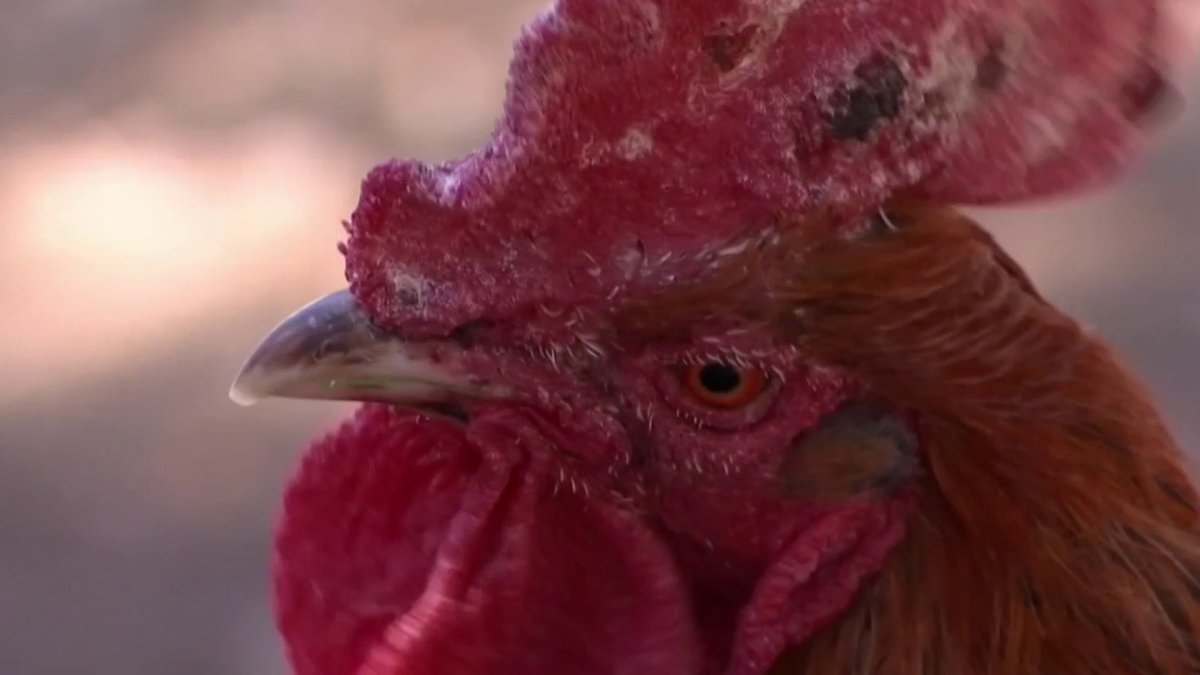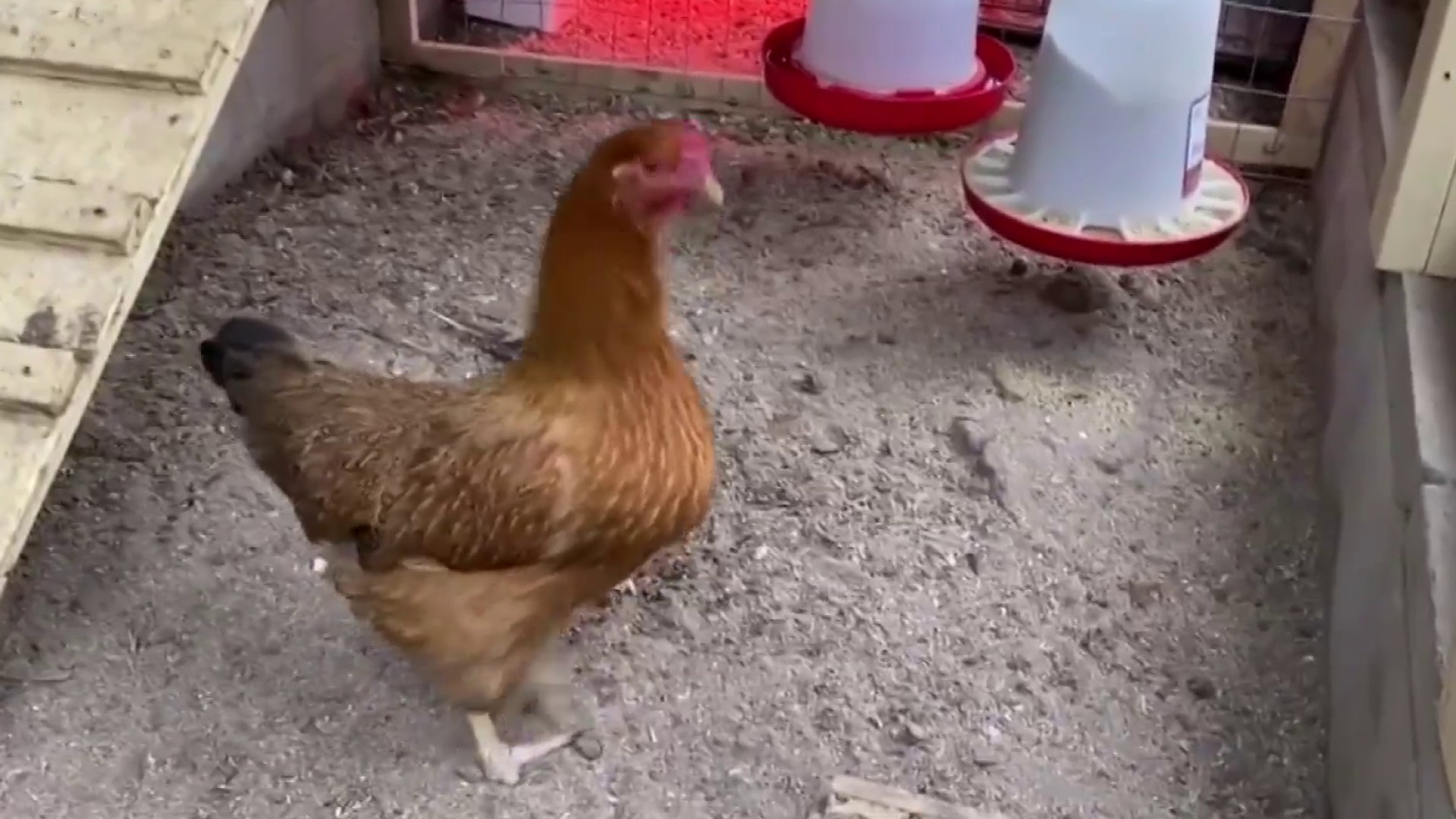
To some San Diegans, the sound of a crowing rooster is a familiar and welcome one. It can be a deeply rooted part of their cultural heritage or upbringing.
But to others, that cock-a-doodle-doo is an unwelcomed squawk, interrupting sleep early in the morning or disturbing their daily routine. It’s partly why local lawmakers updated the city ordinance in 2012 and made rooster ownership illegal.

But that law didn’t eliminate the problem, which was easy to spot when NBC 7 Investigates looked through code-enforcement investigations. San Diegans filed more than 200 complaints due to loud rooster noises in just the last three years alone.
Get top local stories in San Diego delivered to you every morning. Sign up for NBC San Diego's News Headlines newsletter.
None of those cases resulted in fines against rooster owners. Instead, city officials told NBC 7 Investigates they send out two letters when a case is filed. One notification letter goes to the person who complained, letting them know that a warning letter was sent to the homeowner.
Rooster owners are told to remove the animals, but there is no information about possible monetary fines. NBC 7 Investigates asked the city what repercussions rooster owners face if they don’t comply. The only answer city officials repeatedly told us: civil action brought against them by their neighbors. Rooster noise complaints fall in the lowest tier in the priority of cases that the code-enforcement division investigates. Priority 1 cases involve imminent health and safety hazards like unstable structures, leaking sewage and exposed electrical wires. Noise complaints are referred to as “alternative compliance” cases. Inspectors don’t visit sites. Instead, as an option, they refer neighbors to a mediation service to work out the issue without involving the city.
One of those letters arrived at the home of 16-year-old Efrain Zamora in City Heights in mid-October. Zamora said they had two roosters and two hens for a couple of months
Local
“We even named them, you know, due to their characteristics and everything,” Efrain said.
Efrain spoke for the family, with permission from his mother. After getting the warning letter, he said, the family moved quickly to comply with the ordinance, which they weren’t aware of.
“It was a bit sad," Efrain said, "but we knew we had to just because it was the city."
The family opted to rehome the entire flock with relatives because they didn’t want to split up the birds.
Allison Wall, the administrator of the Facebook group San Diego Backyard Chickens, said chicken ownership has boomed in popularity in recent years. It took Wall’s Facebook group four years to reach 1,500 members, but she said that number doubled in size when the COVID-19 pandemic hit, and it keeps rising. She said the trend made for big business for local country stores.
“They couldn’t keep chicks in stock,” Wall said.
Wall said that it’s hard to tell the sex of a chick, even for experts.
“In summer, all of a sudden there were a lot more roosters that needed to be rehomed,” Wall said. “That was definitely tied to people rushing to get chickens and not really knowing what they were getting into.”
Wall has 40 chickens in her backyard, including her two roosters. She lives in Lakeside, where it is legal to own them. Each one has a name and Wall will tell you each has its own personality. She jokes that chickens are a “gateway to farming.” Hens provide a majority of their eggs in their first year, so keeping a couple of roosters on hand allows you to naturally replenish an existing flock.
“Roosters are great,” Wall said. “They’re colorful. I don’t just mean their feathers, but their personalities. They’re definitely the protector of the flock.”
But roosters can be loud – and in some parts of the county, like the city of San Diego, they’re illegal to own, which is why, before you get chickens, Wall said, you need to make sure you have someone who can take roosters.
NBC 7 Investigates spoke with the San Diego Humane Society, which said it regularly takes in both stray and owner-surrendered roosters. Over the past three calendar years, 331 have gone through its intake system, but less than half were owner-surrendered.
Wall believes the ordinance and the rooster ban are partly to blame for those numbers. She said the ordinance “should be reconsidered from a holistic standpoint” and that “it needs to be looked at from a much larger picture and an entire overhaul of the system.”
She hopes lawmakers can update the ordinance by factoring in everything it takes to raise a healthy flock – like the hen-to-rooster ratio and the size of the coop, etc.
“I can tell you exactly what’s in my eggs, and that makes me feel really good about the food we’re eating," Wall said. "So I don’t think that’s going to die down, and in general, I think it causes a problem to not be able to have roosters."
There are multiple private animal rescue organizations that will take in unwanted farm animals like roosters. You can reach out to organizations like Rescue Roos to learn more.

